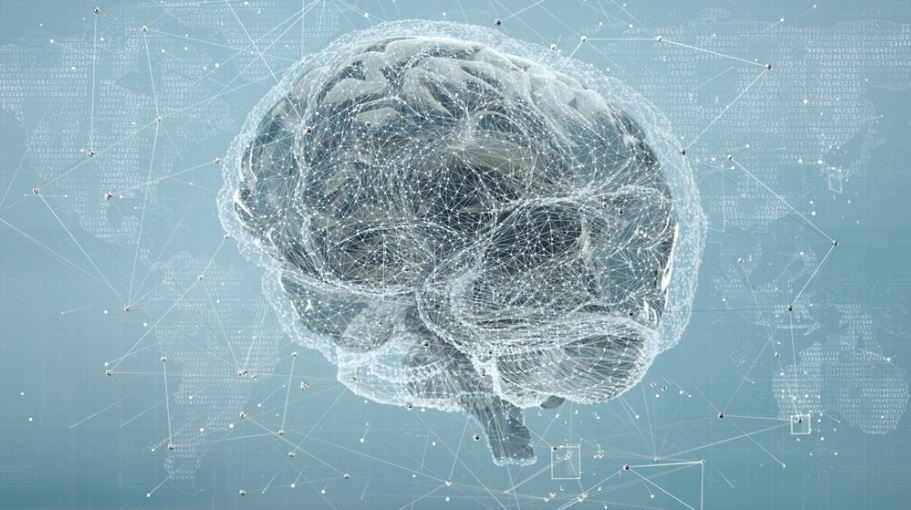


 4:3:31
4:3:31  2023-05-13
2023-05-13  1086
1086

An AI can decode speech from brain activity with surprising accuracy
An artificial intelligence can decode words and sentences from brain activity with surprising — but still limited — accuracy. Using only a few seconds of brain activity data, the AI guesses what a person has heard. It lists the correct answer in its top 10 possibilities up to 73 percent of the time, researchers found in a preliminary study.
The AI’s “performance was above what many people thought was possible at this stage,” says Giovanni Di Liberto, a computer scientist at Trinity College Dublin who was not involved in the research.
Developed at the parent company of Facebook, Meta, the AI could eventually be used to help thousands of people around the world uanable to communicate through speech, typing or gestures, researchers report August 25 at arXiv.org. That includes many patients in minimally conscious, locked-in or “vegetative states” — what’s now generally known as unrersponsive wakefulness sydrome.
Most existing technologies to help such patients communicate require risky brain surgeries to implant electrodes. This new approach “could provide a viable path to help patients with communication deficits … without the use of invasive methods,” says neuroscientist Jean-Rémi King, a Meta AI researcher currently at the École Normale Supérieure in Paris.
King and his colleagues trained a computational tool to detect words and sentences on 56,000 hours of speech recordings from 53 languages. The tool, also known as a language model, learned how to recognize specific features of language both at a fine-grained level — think letters or syllables — and at a broader level, such as a word or sentence.
The team applied an AI with this language model to databases from four institutions that included brain activity from 169 volunteers. In these databases, participants listened to various stories and sentences from, for example, Ernest Hemingway’s The Old Man and the Sea and Lewis Carroll’s Alice’s Adventures in Wonderland while the people’s brains were scanned using either magnetoencephalography or electroencephalography. Those techniques measure the magnetic or electrical component of brain signals.
Then with the help of a computational method that helps account for physical differences among actual brains, the team tried to decode what participants had heard using just three seconds of brain activity data from each person. The team instructed the AI to align the speech sounds from the story recordings to patterns of brain activity that the AI computed as corresponding to what people were hearing. It then made predictions about what the person might have been hearing during that short time, given more than 1,000 possibilities.
Using magnetoencephalography, or MEG, the correct answer was in the AI’s top 10 guesses up to 73 percent of the time, the researchers found. With electroencephalography, that value dropped to no more than 30 percent. “[That MEG] performance is very good,” Di Liberto says, but he’s less optimistic about its practical use. “What can we do with it? Nothing, absolutely nothing.”
The reason, he says, is that MEG requires a bulky and expensive machine. Bringing this technology to clinics will require scientific innovations that make the machines cheaper and easier to use.
Reality Of Islam |
|

Researchers

A well-know

Scientists

As AI-power
 9:3:43
9:3:43
 2018-11-05
2018-11-05
10 benefits of Marriage in Islam
 7:5:22
7:5:22
 2019-04-08
2019-04-08
benefits of reciting surat yunus, hud &
 9:45:7
9:45:7
 2018-12-24
2018-12-24
advantages & disadvantages of divorce
 11:35:12
11:35:12
 2018-06-10
2018-06-10
 6:0:51
6:0:51
 2018-10-16
2018-10-16
 11:2:27
11:2:27
 2022-10-06
2022-10-06
 2:5:14
2:5:14
 2023-01-28
2023-01-28
 1:16:44
1:16:44
 2018-05-14
2018-05-14
a hero waters thirsty wild animals
 9:4:9
9:4:9
 2022-01-06
2022-01-06
 7:34:7
7:34:7
 2023-02-28
2023-02-28
 7:26:19
7:26:19
 2022-04-08
2022-04-08
 8:19:41
8:19:41
 2018-06-21
2018-06-21
 5:41:46
5:41:46
 2023-03-18
2023-03-18
| LATEST |